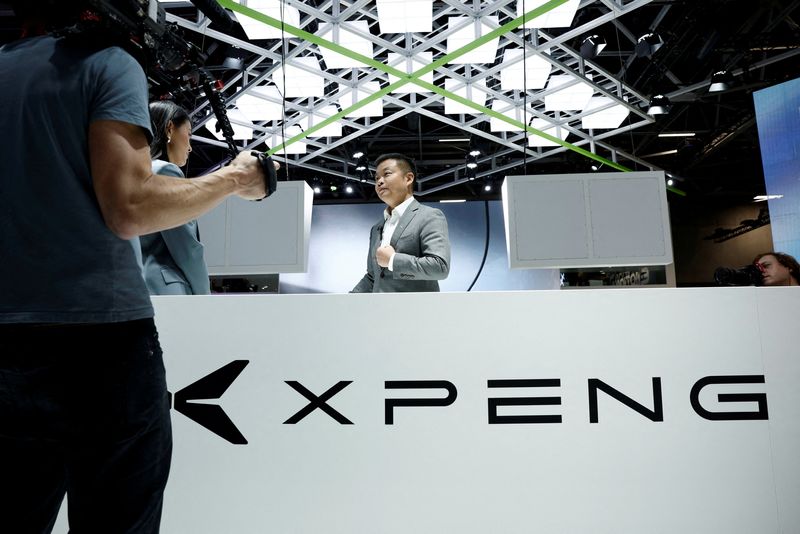SHANGHAI (Reuters) -Chinese electric car maker Xpeng (NYSE:XPEV) is expected to break even sometime later in 2025, its President Brian Gu said, betting that strong demand for its new models and expanding into new overseas markets will improve its profitability.
Meeting the goal Xpeng first set in 2023 could make it the first Chinese automaker to turn profitable mainly on EV sales. Rivals BYD (SZ:002594) and Li Auto (NASDAQ:LI) are profitable but they rely on hybrids for the majority of total car sales.
"I think we are indeed entering the super cycle," said Gu in an interview with Reuters by phone on Wednesday.
"I think sometime in next year, probably towards the later part or the end of next year, we will see as reaching the break even point... We are in a very confident position to see that becomes more likely."
Xpeng has forecast fourth-quarter revenue above Wall Street estimates, thanks to the introduction of new models Mona 03 and P7+. It said the momentum will extend to the fourth quarter and 2025.
The company is also being helped by the roll-out of Chinese government subsidies of up to $2,800 each for trading in older cars for EVs and more fuel-efficient cars.
Xpeng will launch four new models next year and will ramp up expansion in overseas markets apart from North America, where Chinese EVs face 100% tariffs, a de facto ban, said Gu.
It faces being hit with more than 20% tariffs to sell in Europe but the automaker is exploring all options to address the tariff issue, he added.
When asked if they had seen any progress in their bid to build an independent European factory, Gu said "Nothing is ruled out but I think we need to find a way that fits our current capability rather than do something that may not solve our current perspective."
Revenue from tech services, which nearly doubled in the third quarter from a year ago driven by its partnership with Volkswagen (ETR:VOWG_p) , accounted for more than 12% of Xpeng's total revenue.
The company is also working closely with Volkswagen and hopes to expand the technology service partnership with the German automaker to other areas in and outside China, Gu said.
Gu said the company has also been discussing with "dozens" of players in the auto industry on smart driving collaborations.
Xpeng is among Chinese developers of advanced assisted driving systems that have their own large AI models, similar to what Tesla (NASDAQ:TSLA) has been doing with its Full-Self Driving, which is expected to be rolled out in China in the first quarter of 2025.

Xpeng has spent 3.5 billion yuan ($483.07 million) in the last four quarters on artificial intelligence development, including computing power and software development. Such investments will grow steadily next year and become a "large chunk" of its overall R&D spending, Gu said.
($1 = 7.2453 Chinese yuan renminbi)